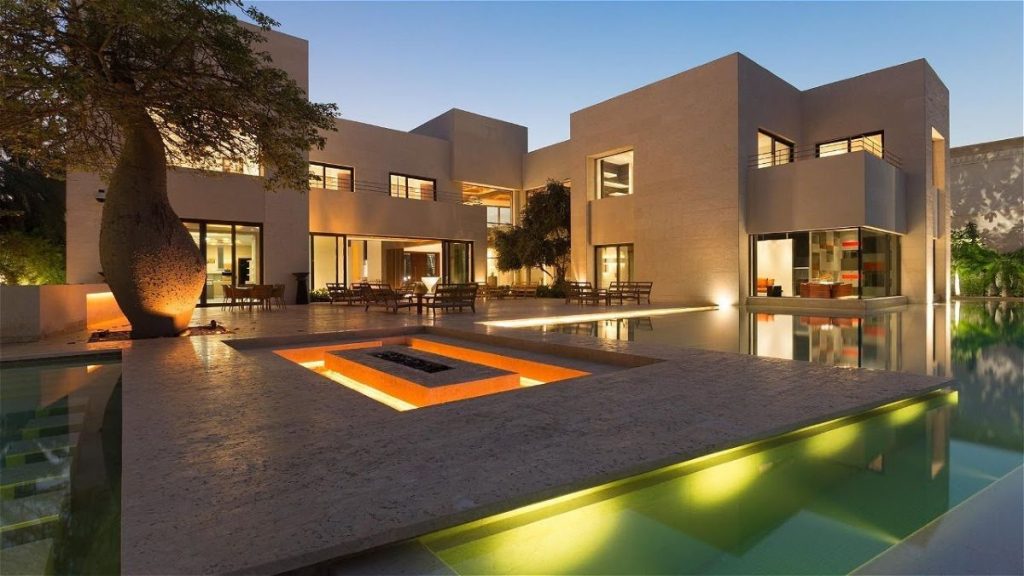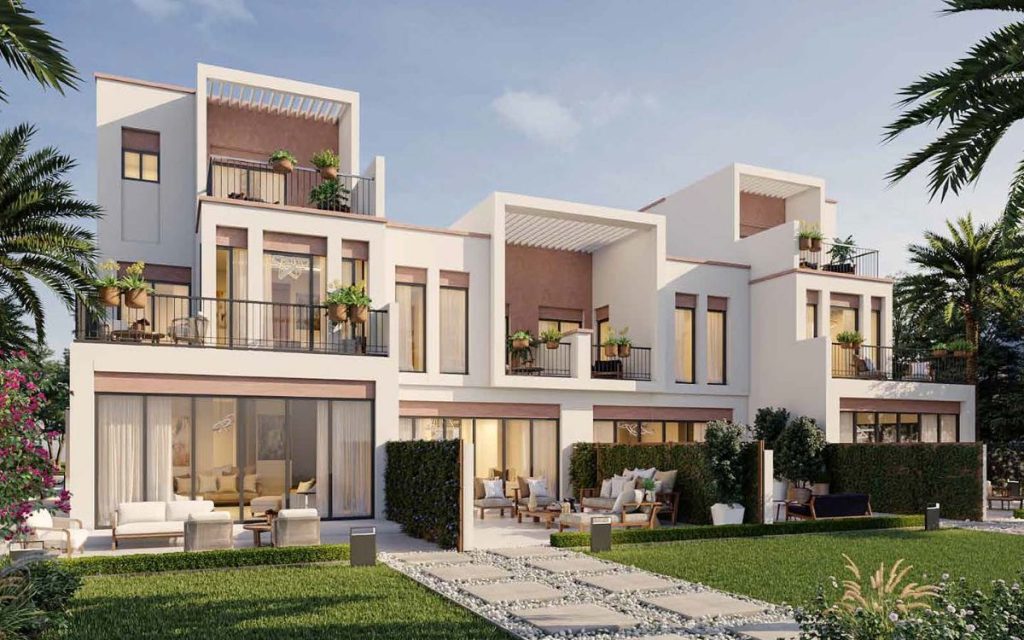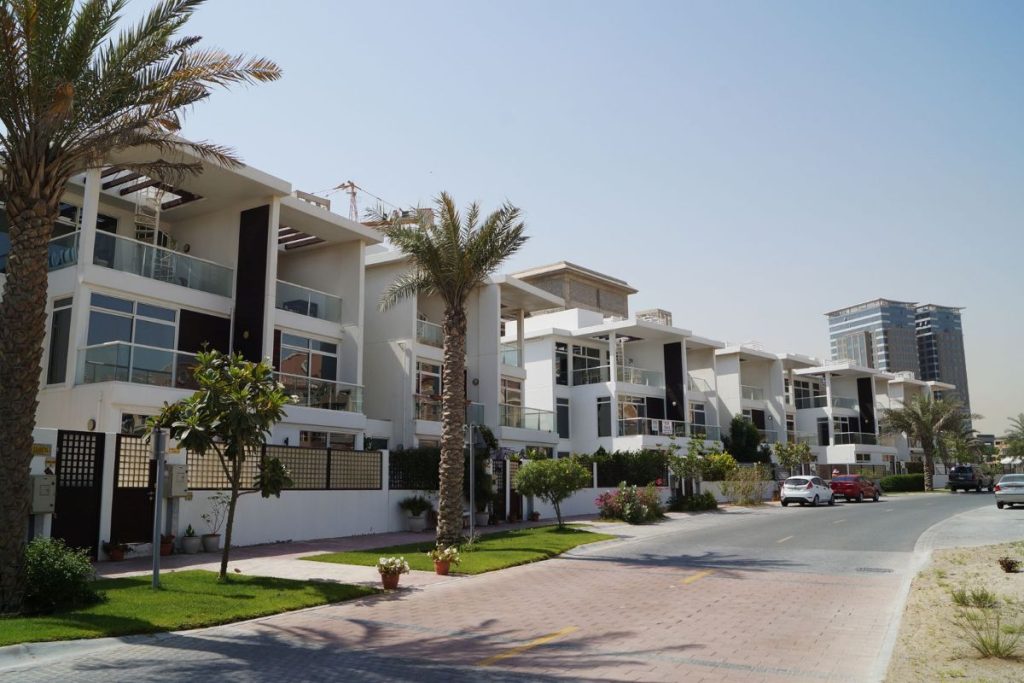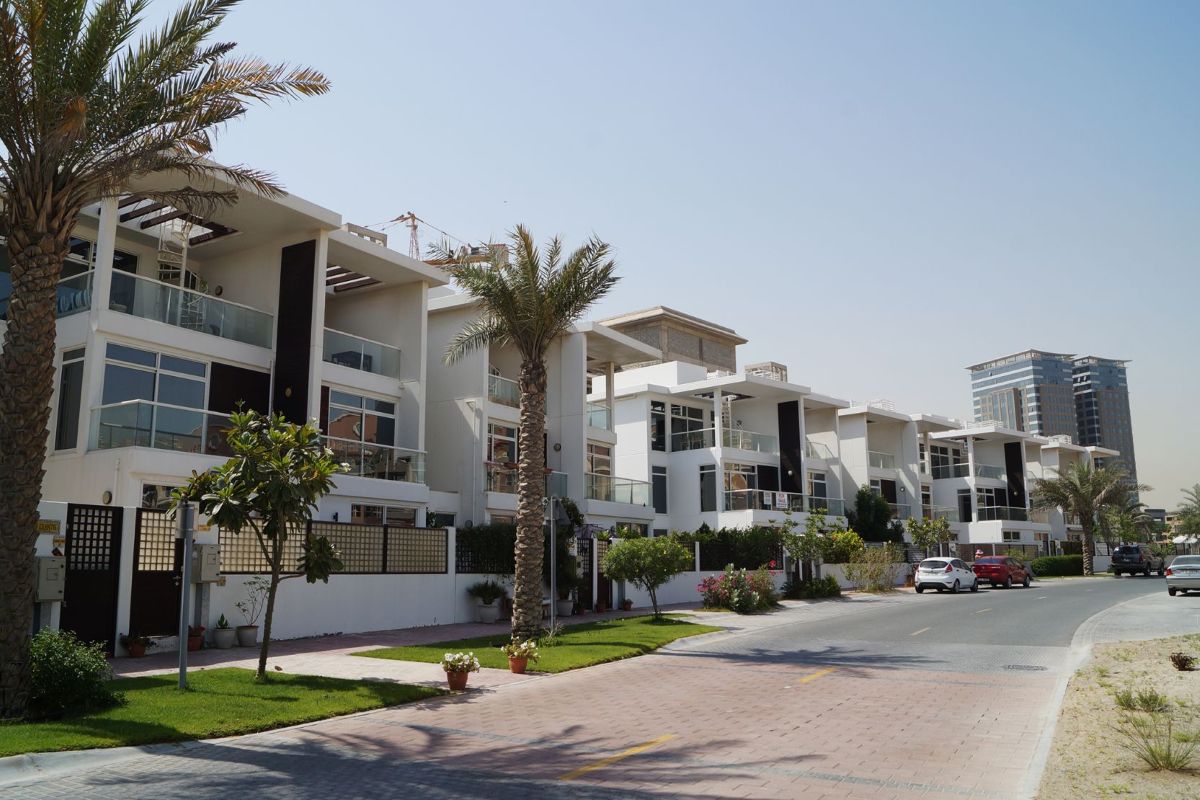Dubai Housing Market 2025: Why It’s the Right Time to Buy a House
For many international investors and expat families, the decision to buy a house in Dubai in 2025 is more appealing than ever before. Dubai’s property market has matured into one of the most transparent, regulated, and opportunity-rich real estate environments in the world. With tax-free income, secure property rights, and government-driven growth strategies, buyers are discovering that owning a villa or townhouse here is not only a lifestyle upgrade but also a long-term wealth-building strategy.
Economic stability and investor protection
Dubai has proven its resilience in global economic shifts. While many markets experienced volatility in recent years, Dubai’s GDP grew by approximately 3.6% in 2024, supported by non-oil sectors such as tourism, logistics, and technology. This diversification provides investors confidence that the housing market is underpinned by a strong economy.
The emirate also maintains one of the most transparent property laws in the GCC region. The Dubai Land Department (DLD) and Real Estate Regulatory Agency (RERA) enforce strict escrow regulations to protect investors, ensuring that funds are secure until project milestones are delivered. Such protections make Dubai significantly safer compared to many emerging markets, attracting global buyers from Europe, India, and the wider Middle East.
Tax-free income and global demand
Another powerful factor driving demand is the absence of property tax, capital gains tax, and inheritance tax in Dubai. For high-net-worth individuals and professionals, this creates an unparalleled opportunity to optimize income and wealth. Combined with one of the world’s strongest rental markets, buyers can expect rental yields of 5–7% on houses and villas, considerably higher than cities like London (3%) or Singapore (2.5%).
Demand is further supported by a growing international population. Dubai welcomed over 3.6 million residents by 2024, with forecasts showing consistent growth as the emirate positions itself as a hub for global professionals. Families from India, Europe, and the GCC form a significant share of villa and townhouse buyers, drawn by lifestyle benefits and investment security.
Lifestyle upgrades in 2025
Buying a house in Dubai is not only about financial returns; it is equally about lifestyle. In 2025, demand for gated communities with private gardens, outdoor leisure spaces, and proximity to schools and business hubs has reached record levels. Popular communities like Dubai Hills Estate, Arabian Ranches, and Mudon are designed for family living, offering top-rated schools, healthcare facilities, and retail centers within minutes.
For professionals working in Downtown Dubai or Dubai Marina, suburban housing options now provide better connectivity thanks to expanded metro lines and new highways. This balance of suburban calm with urban convenience makes Dubai’s villas highly desirable for families upgrading their lifestyle.
Government programs supporting ownership
Dubai’s leadership continues to strengthen the property market through initiatives like the Golden Visa program, which grants long-term residency to property owners meeting certain investment thresholds. Additionally, the emirate has streamlined digital processes for property registration, title deeds, and mortgage approvals, making the transaction journey faster and more transparent.
In 2025, programs aimed at attracting skilled professionals and entrepreneurs ensure that Dubai remains a magnet for long-term residents, further fueling demand for houses rather than short-term rental apartments.
Housing price trends: 2021 vs. 2025
To illustrate the growth and stability of the housing sector, here’s a comparison of median price per square foot between 2021 and 2025:
| Location Type | 2021 Median Price (AED/sq.ft) | 2025 Median Price (AED/sq.ft) | % Growth |
| Central Districts (Downtown, Marina) | 1,250 | 1,520 | +21% |
| Suburban Communities (Dubai Hills, Arabian Ranches, JVC) | 850 | 1,120 | +32% |
The table shows that while central districts remain premium, suburban communities have seen stronger relative growth due to lifestyle demand, affordability, and improved infrastructure. This makes 2025 a highly strategic year to enter the market.

Top Neighborhoods to Buy a House in Dubai for Every Lifestyle
Choosing the right location is just as important as the property itself when you decide to buy a house in Dubai. The city offers a wide spectrum of neighborhoods, each catering to different lifestyles, budgets, and investment strategies. From family-friendly suburban areas with schools and parks to waterfront villas with unmatched luxury, the variety ensures every buyer finds their perfect fit.
Family-Oriented Communities
For families seeking stability, comfort, and a safe environment, suburban neighborhoods are ideal. Communities such as Arabian Ranches, Mudon, and Town Square offer expansive villas and townhouses surrounded by greenery and community-focused amenities.
- Arabian Ranches is one of Dubai’s most established villa communities, known for its golf course, excellent schools, and family-oriented atmosphere. Villas here average around AED 1,150 per sq. ft. in 2025, reflecting steady demand.
- Mudon provides more affordable yet spacious homes, with easy access to sports courts, cycling tracks, and international schools.
- Town Square appeals to younger families and first-time buyers, offering modern townhouses at competitive prices, making it one of the most accessible ways to buy into Dubai’s housing market.
These communities are favored by Indian and European expatriates who prioritize access to international schools, healthcare centers, and child-friendly environments.
Luxury Lifestyle Options
For buyers who want exclusivity and premium living, Dubai offers world-class villa communities. Palm Jumeirah, District One, and Jumeirah Islands stand out for their luxury homes and iconic addresses.
- Palm Jumeirah remains a global symbol of luxury waterfront living, with villas offering private beaches and panoramic views of the Dubai skyline. Prices average AED 3,000+ per sq. ft. in 2025, reflecting its premium status.
- District One in Mohammed Bin Rashid City features contemporary mansions with direct access to the world’s largest man-made lagoon — ideal for high-net-worth individuals who value privacy and exclusivity.
- Jumeirah Islands offers large independent villas surrounded by lakes, perfect for buyers who want tranquility without leaving the city.
These areas are particularly attractive for ultra-high-net-worth investors and retirees seeking a permanent base in Dubai, where lifestyle amenities match global standards.
Affordable and High-Potential Areas
For buyers seeking affordability with strong growth prospects, Dubailand and Jumeirah Village Circle (JVC) are two of the best bets in 2025.
- Dubailand is a vast master development with clusters like Villanova and Serena that cater to budget-conscious families. Villas here average AED 950 per sq. ft., offering more space for lower costs compared to central Dubai.
- JVC has transformed into one of Dubai’s most in-demand affordable neighborhoods, with both rental and sales demand increasing year on year. Its central location, combined with competitive pricing, makes it a hotspot for investors targeting rental yields.
These areas offer strong potential ROI, especially as Dubai continues to expand infrastructure and attract long-term residents.
ROI Comparison Across Buyer Profiles
Investment returns vary across communities, depending on buyer goals. Families value stability, investors focus on rental yields, and retirees prioritize lifestyle.
| Buyer Profile | Best Neighborhoods | Average ROI (2025) | Key Advantages |
| Families | Arabian Ranches, Mudon | 4–5% | Schools, safety, green spaces |
| Luxury Investors | Palm Jumeirah, District One | 5–6% | Global prestige, waterfront living |
| Value Seekers/First Buyers | JVC, Dubailand | 6–7% | Affordability, high rental demand |
| Retirees | Jumeirah Islands, District One | 3.5–4.5% | Privacy, exclusivity, wellness facilities |
This comparison shows that while luxury addresses offer prestige, affordable communities like JVC often outperform them in rental yields. For long-term families, suburban gated communities provide balance between lifestyle and value.
Key Lifestyle Factors Buyers Value Most
When evaluating neighborhoods, buyers consistently prioritize:
- Proximity to schools and universities.
- Access to healthcare facilities and clinics.
- Transport connectivity (metro, highways, airports).
- Safe, walkable, and family-friendly community design.
- Access to retail, leisure, and cultural hubs.
These factors often define whether a neighborhood fits a buyer’s lifestyle or investment plan.

Buying Process Explained: How to Buy a House in Dubai Step by Step
For many international buyers, especially those new to the UAE property market, understanding the process of how to buy a house in Dubai can seem overwhelming at first. However, Dubai has one of the most transparent and well-regulated real estate systems in the world, designed to protect investors and streamline transactions. Let’s break down the process step by step, covering ownership types, legal protections, financing options, and future outlook.
Freehold vs. Leasehold Ownership
The first step is understanding what kind of ownership you are acquiring. In Dubai, properties fall under two main categories:
- Freehold ownership: This allows foreign buyers full ownership of the property and the land it sits on, with no time limit. Freehold areas include most of Dubai’s popular communities such as Arabian Ranches, Palm Jumeirah, and Jumeirah Village Circle. For long-term investors, freehold is the preferred option as it gives maximum control and resale flexibility.
- Leasehold ownership: Buyers purchase the rights to occupy and use the property for a fixed period (usually 30–99 years). This option is often more affordable but comes with limitations compared to freehold.
For anyone planning to buy a house in Dubai for family living or long-term investment, freehold communities remain the most attractive.
The Role of RERA, Title Deeds, and Escrow Accounts
Dubai’s Real Estate Regulatory Agency (RERA) ensures transparency and buyer protection. Key elements include:
- Title Deeds: Issued by the Dubai Land Department (DLD), they officially recognize the buyer as the property owner.
- Escrow Accounts: All off-plan property payments must go into government-monitored escrow accounts, ensuring funds are used only for construction and safeguarding buyers.
- Regulation of Developers and Brokers: Only RERA-approved entities can legally facilitate sales, which minimizes risks for foreign buyers.
This framework makes the process of buying property in Dubai far more secure compared to many global markets.
Financing a House Purchase in Dubai
While many buyers purchase with cash, Dubai offers robust financing options for residents and non-residents alike.
- Loan-to-Value (LTV) Ratios: For first-time expatriate buyers, the maximum LTV is typically 75% for properties under AED 5 million and 65% for properties above AED 5 million.
- Non-Resident Mortgages: Available from several UAE banks, usually requiring a 40–50% down payment and offering terms of up to 25 years.
- Eligibility: Buyers need valid passports, income proof, and in some cases, credit history checks.
For Indian investors in particular, the ability to secure a mortgage in Dubai while benefiting from rental yields and property appreciation makes financing a strategic choice.
Case Study: An Indian Family Buying in Arabian Ranches 3
Consider the case of an Indian family relocating from Mumbai in 2025. Their goal was to buy a house in Dubai that combines family-friendly living with long-term capital appreciation.
- Location Chosen: Arabian Ranches 3, a master community offering villas with green spaces, schools, and easy access to Downtown Dubai.
- Purchase Price: AED 3 million for a 4-bedroom villa.
- Financing: 25% down payment (AED 750,000) with the remaining AED 2.25 million financed via a mortgage at 4% interest.
- Outcome: The family secured a modern villa in a growing suburban district with projected annual price growth of 5–6% and rental yields around 4.5% if they decide to lease in the future.
This example illustrates how structured financing and community selection play a crucial role in making a secure and profitable investment.
Long-Term Outlook: 2025–2030
Dubai’s housing market is projected to remain strong over the next decade. Several factors will shape the experience of homeowners:
- Sustained Demand: Driven by expats, global professionals, and families relocating from South Asia and Europe.
- Government Initiatives: Programs such as the Golden Visa and long-term residency rights tied to property ownership continue to attract international buyers.
- Urban Expansion: New communities, improved infrastructure, and mega projects like Dubai South and Expo City will push property values upward.
- Rental Market Growth: Even for those buying for self-use, rental demand ensures liquidity and strong resale potential.
In conclusion, the process of purchasing property in Dubai is both straightforward and secure, provided buyers follow the correct steps and work with licensed professionals. For those looking to buy a house in Dubai, the combination of legal transparency, financing options, and long-term value makes the city one of the most attractive real estate markets globally in 2025.
Frequently Asked Questions (FAQ)
Question 1. Is it possible for foreigners to buy a house in Dubai?
Yes, foreigners can legally buy a house in Dubai in designated freehold areas. This gives them full ownership of the property and the land, with the ability to sell, lease, or pass it on as inheritance.
Question 2. How much money do I need to buy a house in Dubai in 2025?
The minimum budget depends on location and property type. For example, a townhouse in Jumeirah Village Circle may start around AED 1.2 million, while luxury villas in Palm Jumeirah can exceed AED 10 million. Non-residents typically need at least 25–40% as a down payment when they buy a house in Dubai using a mortgage.
Question 3. What are the benefits of buying a house in Dubai compared to renting?
When you buy a house in Dubai, you secure long-term value, potential capital appreciation, and rental income opportunities. Additionally, ownership may qualify you for a 10-year Golden Visa, making it attractive for expatriates planning to settle with their families.
Question 4. Is buying property in Dubai safe for international investors?
Yes. Dubai’s property market is regulated by RERA (Real Estate Regulatory Agency), with safeguards like escrow accounts and title deed registration. These measures ensure that when you buy a house in Dubai, your investment is transparent, secure, and protected by law.


